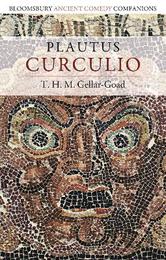
|
Plautus: Curculio
Paperback / softback
Main Details
Description
This is the first book-length study of Plautus' shortest surviving comedy, Curculio, a play in which the tricksy brown-nosed title character ("The Weevil") bamboozles a shady banker and a pious pimp to secure the freedom of the enslaved girl his patron has fallen for while keeping her out of the clutches of a megalomaniacal soldier. It all takes place in the Greek city Epidaurus, the most important site for the worship of the healing god Aesculapius, an unusual setting for an ancient comedy. But a mid-play monologue by the stage manager shows us where the action really is: in the real-life Roman Forum, in the lives and low-lifes of the audience. This study explores the world of Curculio and the world of Plautus, with special attention to how the play was originally performed (including the first-ever comprehensive musical analysis of the play), the play's plots and themes, and its connections to ancient Roman cultural practices of love, sex, religion, food, and class. Plautus: Curculio also offers the first performance and reception history of the play: how it has survived through more than two millennia and its appearances in the modern world.
Author Biography
T. H. M. Gellar-Goad is Associate Professor of Classics at Wake Forest University, USA.
Reviews[Curculio] is refreshingly told in this eminently accessible book. * Sun News Austin * This is a lovely book, meticulously written, but with a joy that is as rare in contemporary scholarship as it is refreshing. * The Classical Review *
|